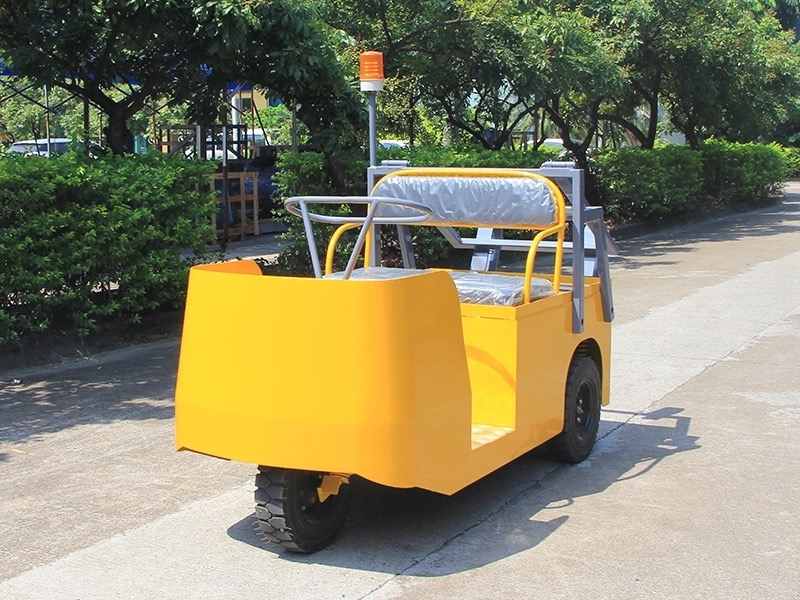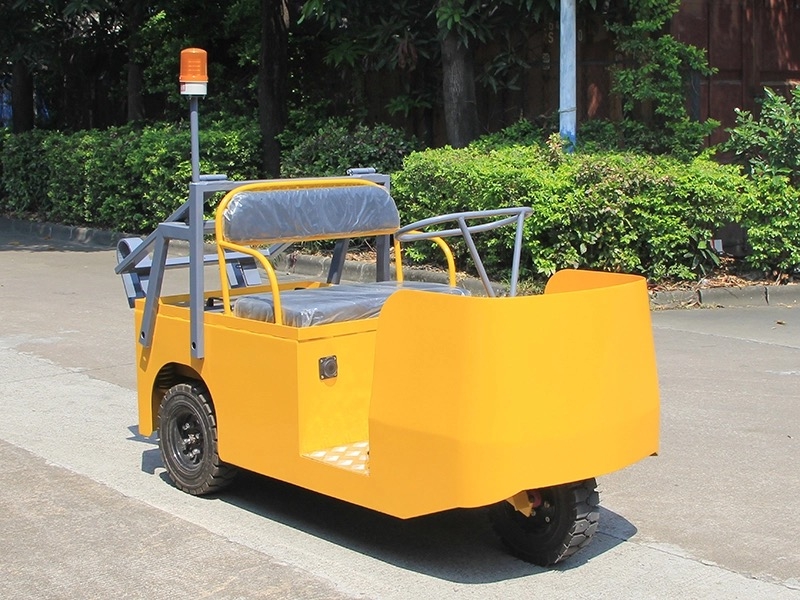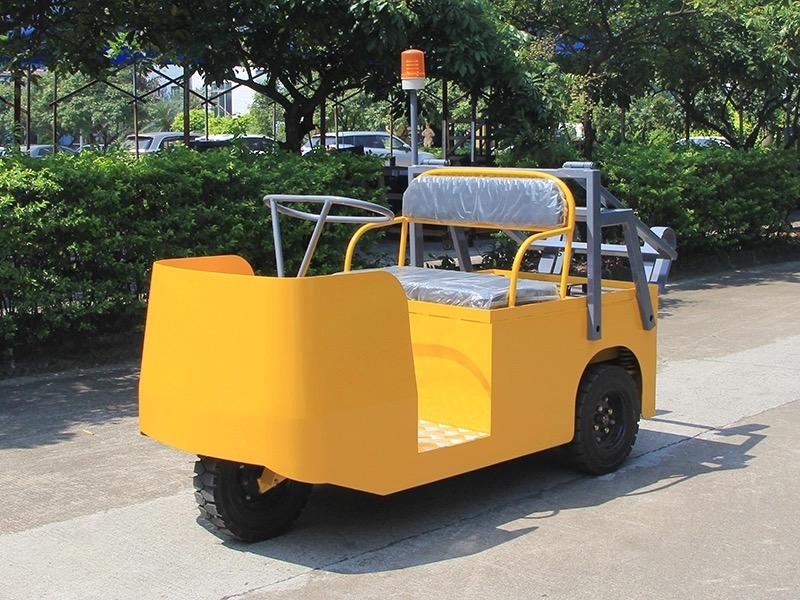In the evolving landscape of material handling and transportation, the choice between electric towing tractors and traditional towing solutions has become increasingly significant. This article delves into the advantages and disadvantages of electric towing tractors, comparing them with conventional towing methods. We will explore various aspects, including efficiency, environmental impact, operational costs, and suitability for different applications. By understanding these factors, businesses can make informed decisions that align with their operational goals and sustainability initiatives.
Understanding Electric Towing Tractors
What Are Electric Towing Tractors?
Electric towing tractors are specialized vehicles designed to transport goods and materials over short distances, primarily in industrial and commercial settings. Unlike traditional towing solutions that often rely on internal combustion engines, electric towing tractors operate on electric power, making them a cleaner and more efficient option for many applications. These vehicles are typically equipped with robust electric motors and advanced battery systems, allowing them to handle various loads while minimizing their environmental footprint. Their design often emphasizes user-friendliness, ensuring that operators can easily maneuver them in tight spaces.
Key Features of Electric Towing Tractors
Electric towing tractors come equipped with several features that enhance their functionality and usability. These include:
Zero Emissions: Electric towing tractors produce no harmful emissions, making them ideal for indoor use and environments where air quality is a concern. This feature is particularly beneficial in warehouses and manufacturing facilities where employees work long hours in confined spaces.
Quiet Operation: The electric motors operate quietly, reducing noise pollution in workplaces. This not only improves the working environment for employees but also allows for more efficient communication and collaboration on the shop floor.
Maneuverability: Many electric towing tractors are designed for tight spaces, allowing for easy navigation in warehouses and production facilities. Their compact design enables them to operate in areas where larger vehicles would struggle, enhancing overall operational efficiency.
Low Maintenance: With fewer moving parts compared to traditional vehicles, electric towing tractors generally require less maintenance, leading to lower operational costs. This reliability can significantly reduce downtime, allowing businesses to maintain productivity levels.

Advantages of Electric Towing Tractors
Environmental Benefits
One of the most significant advantages of electric towing tractors is their positive impact on the environment. By eliminating emissions, these vehicles contribute to cleaner air and a reduced carbon footprint. This is particularly important in urban areas and facilities that prioritize sustainability. As businesses face increasing pressure to adopt greener practices, electric towing tractors can help them meet regulatory requirements and enhance their corporate social responsibility profiles.
Cost Efficiency
While the initial investment in electric towing tractors may be higher than traditional options, the long-term savings can be substantial. Electric vehicles typically have lower energy costs compared to diesel or gasoline-powered vehicles. Additionally, the reduced maintenance requirements further enhance their cost-effectiveness over time. Businesses can benefit from government incentives and rebates for adopting electric vehicles, further offsetting the initial costs and making the transition more financially viable.
Enhanced Safety
Electric towing tractors often come with advanced safety features, such as automatic braking systems and stability controls. These features help prevent accidents and ensure safer operation in busy environments. Furthermore, the absence of exhaust fumes contributes to a healthier workplace for employees, reducing the risk of respiratory issues and enhancing overall employee well-being. The integration of technology, such as collision detection systems, can further improve safety standards in operations.
Versatility in Applications
Electric towing tractors are versatile and can be used in various settings, including warehouses, airports, and manufacturing plants. Their ability to tow heavy loads makes them suitable for transporting goods across large facilities, streamlining operations and improving efficiency. They can also be customized with various attachments and configurations to meet specific operational needs, making them adaptable to different industries and applications.
Disadvantages of Electric Towing Tractors
Limited Range and Power
One of the primary drawbacks of electric towing tractors is their limited range compared to traditional towing solutions. Depending on the battery capacity, electric tractors may require frequent recharging, which can disrupt operations, especially in high-demand environments. Businesses must carefully assess their operational needs to ensure that electric tractors can meet their requirements without causing delays or inefficiencies.
Initial Investment Costs
The upfront costs associated with purchasing electric towing tractors can be a barrier for some businesses. While the long-term savings are significant, the initial financial outlay may deter companies from making the switch from traditional towing solutions. Companies must weigh the benefits of reduced operating costs against the initial investment, considering factors such as financing options and potential return on investment.
Charging Infrastructure
To fully benefit from electric towing tractors, businesses must invest in charging infrastructure. This includes installing charging stations and ensuring that there is adequate power supply, which can add to the overall costs and complexity of transitioning to electric solutions. Companies must also consider the logistics of charging schedules to minimize downtime and ensure that vehicles are always ready for use.

Comparing Traditional Towing Solutions
Overview of Traditional Towing Solutions
Traditional towing solutions typically involve vehicles powered by internal combustion engines, such as diesel or gasoline-powered tractors and trucks. These vehicles have been the standard in many industries for decades and are known for their robustness and reliability. Their design often emphasizes power and durability, making them suitable for heavy-duty applications where performance is critical.
Advantages of Traditional Towing Solutions
High Power and Range
Traditional towing solutions often provide greater power and range compared to electric options. This makes them suitable for heavy-duty applications where high towing capacity and long operational hours are required without the need for frequent refueling. Businesses that operate in demanding environments may find that traditional vehicles can handle their needs more effectively, especially for long-distance transport.
Established Infrastructure
Many businesses already have the necessary infrastructure in place for traditional towing solutions, including fueling stations and maintenance facilities. This can make it easier for companies to continue using these vehicles without significant additional investment. The familiarity of operators with traditional vehicles can also reduce training costs and improve operational efficiency.
Familiarity and Reliability
For many operators, traditional towing solutions are familiar and trusted. The established technology and widespread availability of parts and service can make these vehicles a reliable choice for businesses. Companies can benefit from a well-developed support network, ensuring that they can quickly address any issues that arise.
Disadvantages of Traditional Towing Solutions
Environmental Impact
Traditional towing solutions contribute to air pollution and greenhouse gas emissions, which can have negative effects on both health and the environment. As regulations around emissions become stricter, businesses may face increased pressure to adopt cleaner alternatives. The growing public awareness of environmental issues can also influence consumer preferences, making sustainability a critical consideration for companies.
Higher Operating Costs
The cost of fuel for traditional towing solutions can be significant, especially with fluctuating fuel prices. Additionally, these vehicles often require more maintenance due to the complexity of internal combustion engines, leading to higher overall operating costs. As fuel prices rise and maintenance needs increase, businesses may find that traditional solutions become less economically viable over time.

Making the Right Choice
Factors to Consider
When deciding between electric towing tractors and traditional towing solutions, businesses should consider several factors:
-
Operational Needs: Assess the specific requirements of your operations, including load capacity, distance, and frequency of use. Understanding these needs will help determine which solution is best suited for your business.
-
Environmental Goals: Consider the company's commitment to sustainability and how each option aligns with those goals. Companies that prioritize environmental responsibility may find electric solutions more appealing.
-
Budget Constraints: Evaluate the initial investment versus long-term savings to determine the most financially viable option. A thorough cost-benefit analysis can provide valuable insights into the best choice for your organization.
-
Workplace Environment: Analyze the working conditions, including indoor versus outdoor use, and the importance of noise and emissions. The specific environment in which the vehicles will operate can significantly influence the decision.
Future Trends in Towing Solutions
The future of towing solutions is likely to see continued advancements in electric technology. As battery technology improves, electric towing tractors will become more powerful and capable of longer ranges. Additionally, the growing emphasis on sustainability will drive more businesses to consider electric options as viable alternatives to traditional solutions. Innovations in charging infrastructure and battery management systems will further enhance the practicality of electric towing tractors, making them an increasingly attractive choice for a wide range of applications.
Conclusion
In conclusion, the choice between electric towing tractors and traditional towing solutions depends on various factors, including operational needs, environmental considerations, and budget constraints. Electric towing tractors offer numerous advantages, such as zero emissions, lower operating costs, and enhanced safety features, making them an attractive option for many businesses. However, traditional towing solutions still hold their ground in terms of power and established infrastructure. Ultimately, businesses must carefully evaluate their specific circumstances to make the best decision for their operations, considering both current needs and future trends in the industry. By doing so, they can position themselves for success in an increasingly competitive and environmentally conscious marketplace.

Frequently Asked Questions regarding Electric Towing Tractors
1. What are the primary benefits of using electric towing tractors in industrial settings?
Electric towing tractors offer several benefits, including zero emissions, which improve air quality in indoor environments. They also operate quietly, reducing noise pollution, and have lower maintenance costs due to fewer moving parts. Additionally, their maneuverability allows for efficient operation in tight spaces.
2. How do electric towing tractors compare to traditional towing solutions in terms of cost?
While electric towing tractors may have a higher initial purchase price, they typically result in lower long-term operating costs due to reduced fuel expenses and maintenance needs. Businesses can also benefit from government incentives for adopting electric vehicles, which can help offset the initial investment.
3. What are the limitations of electric towing tractors?
Electric towing tractors may have limited range and power compared to traditional vehicles, requiring more frequent recharging. This can be a disadvantage in high-demand environments where continuous operation is necessary. Additionally, businesses need to invest in charging infrastructure, which can add to the overall costs.
4. In what types of environments are electric towing tractors most effective?
Electric towing tractors are particularly effective in indoor environments such as warehouses, manufacturing plants, and distribution centers. Their zero emissions and quiet operation make them ideal for spaces where air quality and noise levels are critical considerations.
5. What factors should businesses consider when choosing between electric and traditional towing solutions?
Businesses should evaluate their operational needs, including load capacity and distance requirements, as well as their environmental goals and budget constraints. Additionally, they should consider the existing infrastructure for fueling or charging and the familiarity of their workforce with each type of vehicle.






